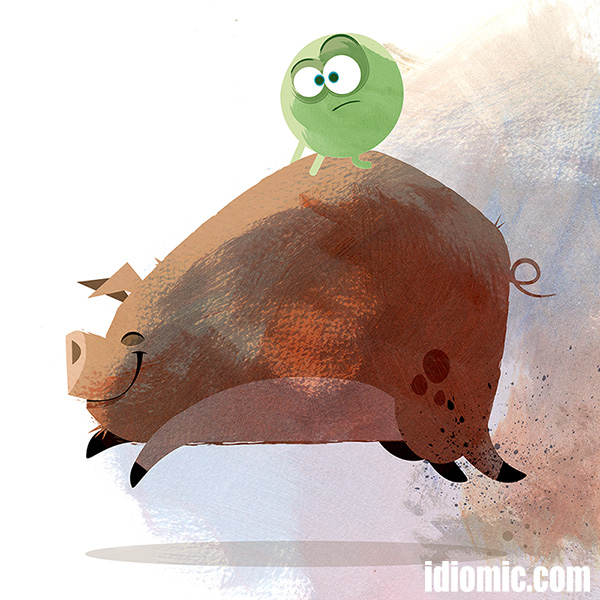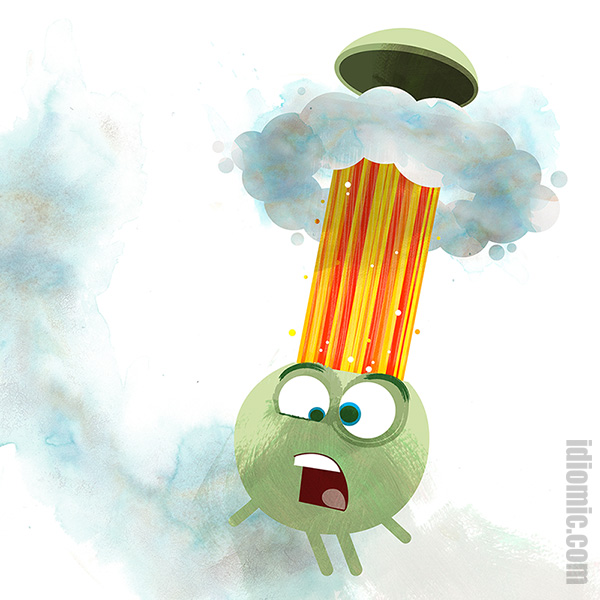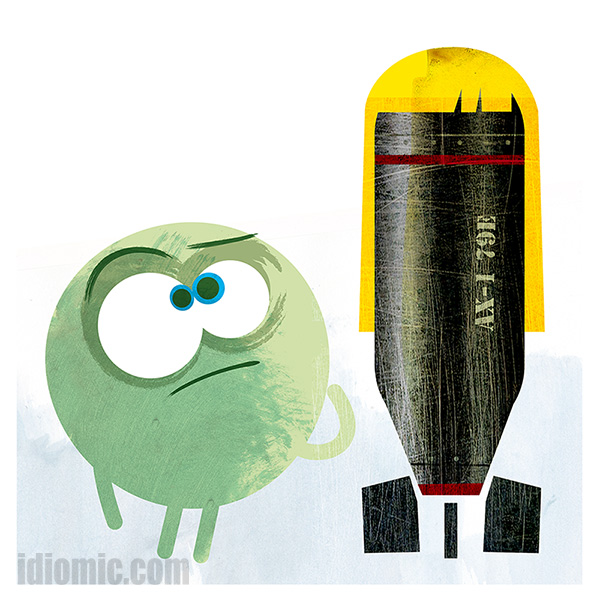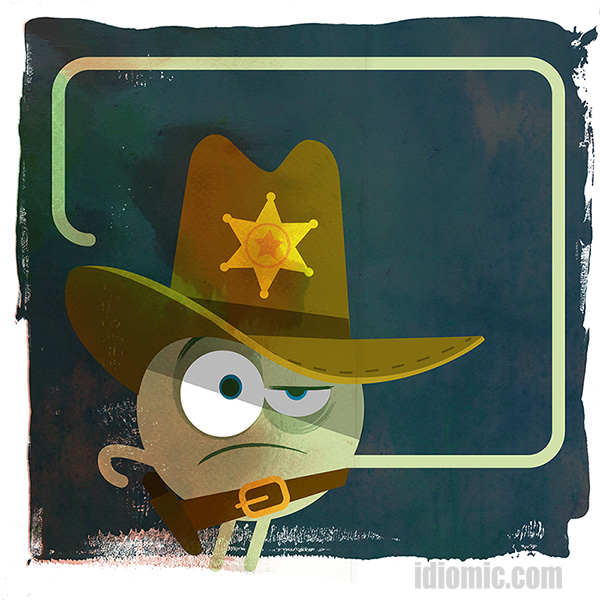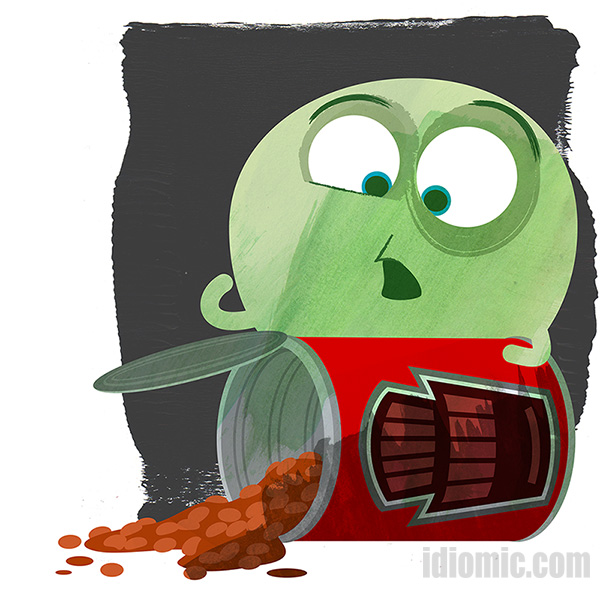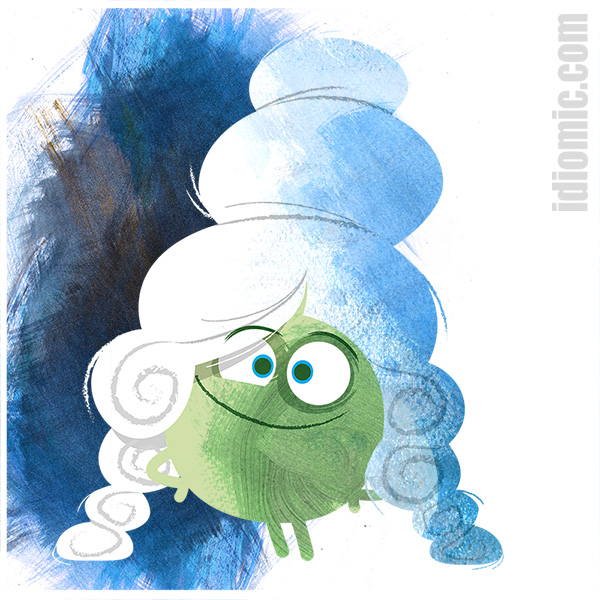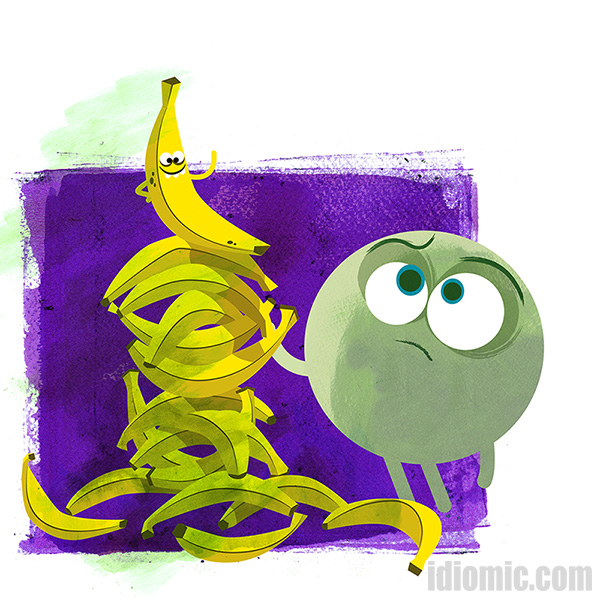Definition: Something very easy to do
Example: After six months of weight training, a dozen all-you-can-eat buffets, and a two day fast, winning the pie eating contest was a piece of cake for Bradley.
Origin:
It is thought that this phrase may have come from contests, popular in the 1870s, where a cake was the prize. Not cash. Not cruise tickets. A cake.
A second, darker theory, is that it originates from a humiliating tradition that occurred in slave states. Pairs of slaves were made to circle a cake, and the most ‘graceful’ pair would win the baked goods. Iddy’s not sure how the heck that particular tradition came to be and he doesn’t really want to know either.
In all likelihood, it may have come to be simply from the fact that eating a piece of cake is probably one of the easiest, most joyful things most people can do.
Iddy doesn’t care about any of it. He just wants to eat that chunk of sugary delight. And the heck with the calories.



